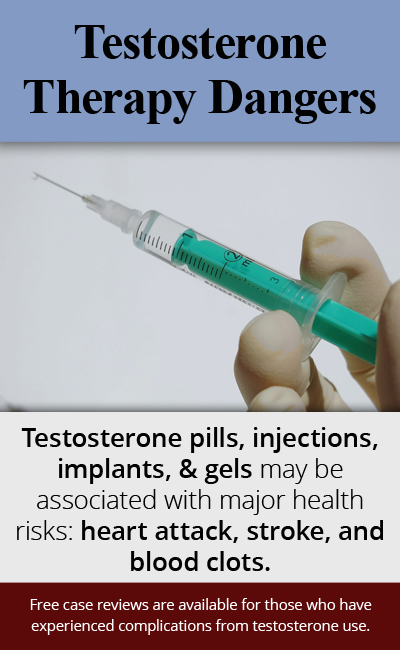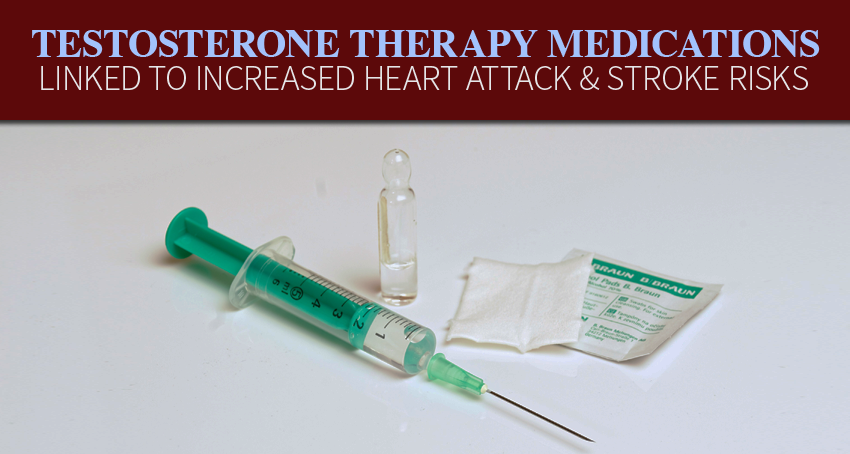At the same time, additional studies have established a potential connection between testosterone therapy and a number of other severe health complications, such as osteonecrosis and bone damage.
If you believe you have been adversely affected by side effects of testosterone therapy, contact the Monroe Law Group today by completing the case evaluation form on this page, calling 866-308-1092, or emailing us at intake@monroelawgroup.com to discuss your legal options. You may be entitled to compensation for your injuries and medical bills, which you can pursue by filing a low-T treatment lawsuit against the drug manufacturing company.
What is Testosterone Replacement Therapy?
Testosterone replacement therapy, also known as testosterone therapy or low-T treatment, is a type of medical treatment commonly prescribed to men diagnosed with hypogonadism or another disease associated with abnormally low levels of testosterone. Testosterone is a male hormone produced primarily in the testicles that helps maintain sex drive, sperm production, muscle strength, red blood cell production and bone density, among other male attributes. With age, testosterone levels typically decline, usually about one percent a year after age 30 or 40, and while some men suffer low testosterone levels due to a medical condition, like hypogonadism, others experience a decline in testosterone associated with the normal aging process.
Hypogonadism is a disease characterized by the body’s inability to produce normal amounts of testosterone, and typically occurs due to a problem with the testicles or with the pituitary gland that controls the testicles. Testosterone treatments like AndroGel and Testim can improve the signs and symptoms of low-T levels in men with hypogonadism, but testosterone replacement therapy is not recommended for men experiencing signs of naturally declining testosterone, like reduced sexual desire, infertility, reduced muscle strength and decreased energy levels. However, some older men without hypogonadism begin taking low-T treatments like AndroGel, under the impression that the medication will help make them feel younger and more vigorous as they age.
Low-T Treatments Linked to Serious Side Effects
Not only is testosterone replacement therapy not approved for use among otherwise healthy men experiencing naturally declining testosterone, but the treatment can actually have serious side effects for these patients. According to a growing body of research, men using prescription testosterone skin patches, topical creams, gels or injections may face a significantly increased risk of severe side effects, like stroke, heart attack, blood clots, venous thromboembolism, prostate cancer, decreased sperm production, irregular heartbeat and even death. In one of the most recent TRT studies, published in the medical journal Orthopedics in December 2015, researchers found an increased risk of osteonecrosis and bone damage in men taking low-T products.
Testosterone Therapy Warnings from the FDA
It was in January 2014 that the U.S. Food and Drug Administration (FDA) issued its first warning about “the risk of stroke, heart attack and death in men taking FDA-approved testosterone products,” and in March 2015, the FDA issued another drug safety communication, this time requiring the manufacturers of all prescription low-T products to update their drug labels to include information about “a possible increased risk of heart attacks and strokes in patients taking testosterone.” At that time, the FDA warned that prescription TRT products are approved only for men who have low-T levels caused by certain medical conditions, like hypogonadism.
Pursuing Compensation for TRT Injuries
Prescription testosterone products have become more and more popular in the United States, as older men search for ways to reverse the effects of the natural aging process, and sales of low-T products skyrocketed from $18 million in 1988 to $1.6 billion in 2011. Between 2001 and 2011, the percentage of men over 40 receiving testosterone replacement therapy tripled. Despite the rise in popularity of testosterone drugs like AndroGel and Testim, medical professionals disagree over the benefits of the medications, and more than 1,000 TRT lawsuits have been filed on behalf of men who suffered serious complications while using low-T products. Contact a knowledgeable testosterone therapy lawyer today if you believe you or a loved one has been harmed by side effects of testosterone replacement therapy.
There is no risk to you in consulting one of our lawyers today. Contact Monroe Law Group now by phone at 866-308-1092 or by email at intake@monroelawgroup.com to arrange for your free, no-obligation consultation.


